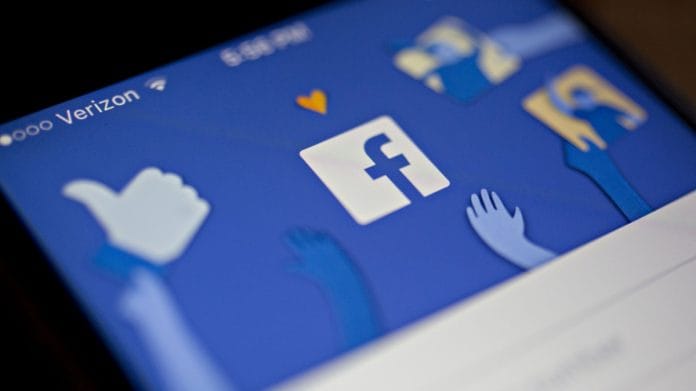Facebook Inc.’s head of global safety faced tough questions from lawmakers who accused the company of prioritizing profit and growth over the health of its youngest users.
Senators at a hearing Thursday seized on Facebook’s internal research about the mental-health effects of its platforms, arguing the social media giant can’t be trusted to act in the best interest of children and teens. Senator Richard Blumenthal said Facebook has “chosen growth over children’s mental health and well-being, greed over preventing the suffering of children.”
“Facebook has shown us once again that it’s incapable of holding itself accountable,” said Blumenthal, the chair of the Senate Commerce Committee’s consumer protection panel.
Antigone Davis, Facebook’s global head of safety, said the company uses its own studies and works with outside experts to develop tools to keep young users safe on its platforms, give parents more safety options and prevent people younger than 13 from lying about their age to create accounts.
“It’s why we conduct this research: to make our platforms better, to minimize the bad and maximize the good, and to proactively identify where we can improve,” Davis said. “Facebook is committed to building better products for young people, and to doing everything we can to protect their privacy, safety and well-being on our platforms.”
The hearing follows reporting by the Wall Street Journal that Facebook understood the negative effects its photo-sharing app, Instagram, has on young users, including anxiety, depression and suicidal thoughts, and yet downplayed the research. Almost a third of teen girls with body-image issues told Facebook that scrolling through Instagram made those problems worse, according to documents reviewed by the newspaper.
The Journal also detailed how Facebook is aware that millions of celebrities get special treatment for questionable content, human traffickers actively use the platform and an algorithm change fueled increasingly divisive posts. The newspaper series has reignited anger in Washington at the social media giant, although lawmakers are still far from passing proposed legislation aimed at the platform.
“You’ve lost the trust and we do not trust you,” Tennessee Senator Marsha Blackburn, the panel’s ranking Republican, told Davis.
Blumenthal, a Connecticut Democrat, said he thinks the hearing will add to momentum to update the Children’s Online Privacy Protection Act — the 1998 law that prohibits data collection on those younger than the age of 13. He also said he would consider issuing subpoenas for any additional internal studies from Facebook.
“The combination of today’s testimony and the evidence from the whistle-blower on Tuesday will certainly bolster momentum very powerfully,” Blumenthal told Bloomberg, referring to next week’s public hearing with a former Facebook employee who provided company documents to the Journal. “There’s certainly an urgency to the problem.”
Also read: Facebook is entering an age of uncertainty for its investors
Sharp questions
Senators asked sharp questions regarding suicide rates for Instagram users, specific policy changes as a result of Facebook’s research, and how the company’s business model guides product design.
Davis emphasized that the company’s studies didn’t establish a causal relationship between Instagram use and mental health outcomes, and she explained how the company has made changes to the platform to try to improve user experience. Davis spoke about her own experience raising a daughter, and with her brother and a close friend who died by suicide.
“If there’s one person on our platform who attributes their suicidal ideation to our platform, that’s one too many,” Davis said. “We care deeply about it.”
Senators also questioned Facebook’s governance model, with most of the power and decision-making concentrated in the hands of founder and Chief Executive Officer Mark Zuckerberg. When asked repeatedly who at the company would sign off on releasing more research or approving product changes, Davis said such decisions would involve many people and the company is “looking to provide more transparency.”
Also read: YouTube ‘valuable’ for teen mental health, says Google as Instagram battles ‘toxic’ label
‘Totally insufficient’
Instagram’s head of research, Pratiti Raychoudhury, said in a blog post Sunday that the study quoted by the Journal was a small sample of 40 teens, and most of them reported feeling better in other categories like loneliness and anxiety after using Instagram. Raychoudhury’s post also detailed actions taken to make Instagram a healthier platform for young people, like adding resources for those struggling with eating disorders and removing some content related to suicide.
The company released two slide decks late Wednesday outlining Instagram’s mixed impact on the way young people feel about themselves. The Journal later released additional documents that informed the newspaper’s reporting.
As part of its response to the fallout from the Journal’s reporting, Facebook announced Monday that it will pause work on a version of Instagram for children. Still, Adam Mosseri, the head of Instagram, said in a blog post that building a version of the app for children ages 10 to 12 is still “the right thing to do” to give parents more control.
Davis said from June to August, Facebook removed 600,000 accounts belonging to children younger than 13. She also said the company is looking for ways to release more of the company’s internal studies and to give external researchers access to Facebook data.
Blumenthal told reporters Wednesday that a pause in Instagram for kids is “totally insufficient.”
“It’s a mockery of what they should be doing, which is to say, stop exploiting children and cease abusive practices that put profits over children’s safety,” he said.
In addition to testifying before the consumer protection subcommittee next week, the Facebook whistle-blower is scheduled to appear Sunday on CBS’s “60 Minutes.” Davis said Facebook won’t retaliate against the whistle-blower for cooperating with the Senate. The whistle-blower is no longer working at the company.—Bloomberg
Also read: Instagram not ‘toxic’ for teen girls, Facebook rebuts Wall Street Journal report






